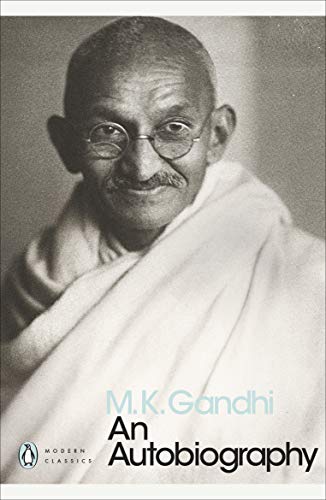An Autobiography: The Story of My Experiments with Truth
M.K. Gandhi,Sunil Khilnani,Mahadev Desai,Mohandas Karamchand Gandhi,Mahatma Gandhi
Sold by AwesomeBooks, Wallingford, United Kingdom
AbeBooks Seller since 28 November 2006
Used - Soft cover
Condition: Used - Very good
Quantity: 2 available
Add to basket